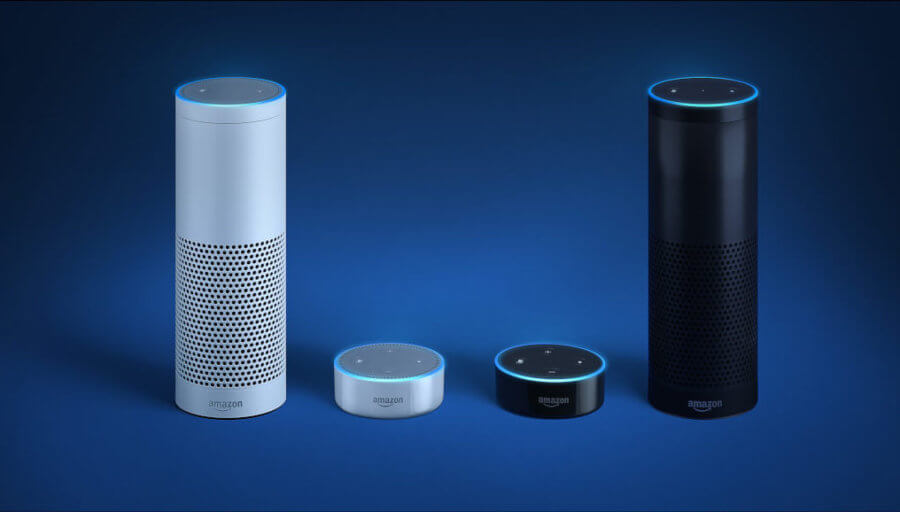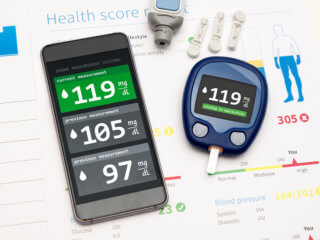Amazon’s Alexa in healthcare
When anyone is suffering from a health problem, they will go to a hospital. But most of these hospitals deal with the problems which are physical in nature. Then, what about the mental problems? Mental problems are hazardous. They are slowly dragged into depression and may also lead to death sometimes. You may think that there are psychiatrists. The problem with the people suffering from mental illness is that they don’t want to share their issues with the doctors. They may hesitate to do that.
For this reason, sometimes doctors also suggest such people talk to the near ones like friends or family and also spend some time with them. This will make them relax and reduce the chance of getting into depression.
Now, our problem is that to find a digital companion to share our problems when our dear ones are not near to us.
If finding a human, who shares your problems, becomes difficult, then don’t worry. Amazon’s Alexa in healthcare may be your caretaker & friend.
Amazon thought of the same as we discussed and developed ALEXA in November 2014. Alexa is a digital assistant providing companionship for the people who are feeling lonely and are trying to get them out of that solitude. It can be availed in English and German. People can use it for playing music, check the weather and many more purposes.
What’s the technology behind this digital companion?
Amazon’s new gadget comprises two components. First one is Echo, and another one is Alexa. Echo is known as a smart speaker and the digital assistant which powers this speaker is called as Alexa. The idea came from Joseph Weizenbaum’s ELIZA, which takes the conversation, accomplishes it by deconstructing parts of speech and typewriting them back to the user in a way that sustains the conversation. Amazon has provided a shape to ELIZA.
In several ways, Alexa is the progeny of ELIZA. ELIZA does not understand the phrases it constructs, but a human does. But Alexa uses Artificial Intelligence (AI) and provides better response to the person. The way it interacts with people is much more sophisticated than the teleprinter-fed program, but the overall intended effect is the same i.e. communication.
Alexa Voice Service (AVS) is an understanding and scalable cloud service that adds voice-enabled experiences to any connected product. For this, all you need is a microphone and speaker. Users can simplify talk to their Alexa-enabled products to answer questions, play music, get NEWS and local information and control smart home commodities and further.
After receiving our voice, the further work is done by the Alexa Skills Kit (ASK). It is a collection of self-service API’s, tools, documentation and code samples that make it easy and fast for you to add skills to Alexa.
Here, skills are nothing but apps. All of the code runs in the cloud unless installing it in any one of the user’s devices.
With ASK, you can create compelling, hands-free voice experiences by adding your skills to Alexa. Customers can access these new skills on any Alexa-enabled device simply by asking Alexa a question or making a command.
Amazon discovered that developing an AI as uncanny and service as possible is crucial in the inspiring widespread confirmation of the Echo. Weizenbaum was primarily worried about the relationships that develop between an AI and its user, while today’s AI experts are more bothered about the complex relationship between technology, user and the government under which they exist.
Now with the free Amazon Alexa App, users can easily control and manage their products from anywhere.
How deep is their knowledge to handle serious illness?
As Alexa is designed to interact with the people, it is fed with a set of tools called ASK. The ASK consists of many tools that will take care of our health and provides remedies for certain illnesses. As it is intended to provide a fellowship for the people who feel lonely. The team gave Alexa a personality, by making its voice sound more natural, and writing witty or funny answers to ridiculous questions. In this way, it makes people happy and to feel a social anxiety that they don’t feel with. This is the major task that Alexa do to handle people from their severe mental illnesses.
A recent widower noticed that Alexa had “restored much comfort to my life and lifted the sadness and loneliness of being alone.”
Indeed, for people who undergo clinical issues with addiction, compulsion or may be depression, the integration of any technology as part of a therapy plan should be made in discussion with the patient and those providing for their medical care. Alexa isn’t trying to be a friend of you, but it could be eavesdropping on you. Amazon is consistently developing Alexa, who now can learn more than 1000 skills.
There’s no coincidence that Alexa sounds like a woman. This is done necessarily by taking results from a survey. A 2011 Indiana University researchers found that when it comes to mixed voices, both women and men find female voices to be “warmer.” When inquired about the how they improved the voice for Alexa, agents of the Alexa Team informed me, that they “tested several voices and found that this voice was preferred amongst customers.”
Will Alexa be your daily life companion for wellness and health care?
Alexa is designed to get smarter every day, adapting to its user’s speech patterns, vocabulary, and personal preferences. Alexa doesn’t exist inside the Echo’s hardware, but rather, on Amazon’s servers. The Echo is merely a conduit for Alexa. It has been combined with every aspect of the human experiences by using ASK.
Moreover, its primary objective is to elicit feelings of comfort and intimacy within the user. So, I can assure that Alexa will be your daily life companion due to its ability to attach itself to its users isn’t science-fiction. It’s already happening. While thousands of Alexa skills have been developed, there are only a few in health care.
There are over 150 Alexa skills developed for health and fitness comprising using voice to check on Fitbit progress. It is amusing to note that Fitbit enjoys 49 or more percent of wearable selection by those 45 and earlier according to Rock Health’s 2016 consumer study on digital health. Some of them also include making an appointment with a doctor. Some of them are:
- Mount Sinai, for finding physicians associated with the Mount Sinai Health Partners program,
- Zika Facts and HealthBuddy for disease-specific information,
- Boston Children’s Hospital Kids MD for children’s illness and vaccination advice,
- Marvee care companion for ageing family members,
- Health Care Genius for health care terminology likes “What’s a deductible?”
This ambient technology also offers many possibilities for the elderly and disabled. It provides many benefits such as taking less time on screen, less keyboard typing and less computer fatigue.
What surprised me as a health care technologist is just how easy it is to develop new skills or apps for Alexa, and what the impact of this new app technology could be on health care as a whole. To say it is revolutionary is truly an understatement. – Colin Rhodes, Health care CIO/CTO
Alexa may not have all the answers yet, but its learning system depends on building skills.
The market for digital companions
The possibility of this gadget, even for a single function such as playing a music playlist or presenting accessibility for a disabled person, makes it worth for some folks, particularly in the holiday price of $39.99 for the Dot. Its user base includes disabled people who cannot move out of the house freely, homemakers who feel lonely with their employed husbands, employees who are complied with their seniors, widows who are depressed with their spouse’s death and much more.
Alexa is also integrating with individual companies like Lenovo, HealthTap, Google voice, etc. At CES this year, Amazon was not, present alone. Alexa, however, was found in cars, laundry machines, phones and even robots. So far, based on the number of companies rushing to integrate, this investment in Alexa only makes it more popular with consumers.
The gadget has acquired an enormous amount of reaction from the people. Since its US launch in 2015, Amazon has sold millions of Echo speakers, even selling out over this past holiday season.
Currently, the Echo and the Dot (smaller and cheaper versions) are Amazon’s top-selling tech products. Consumer Intelligence Research reports say more than 5 million Amazon Echo products have been sold in the last two years ahead of the 2016 holiday season. Maybe, Alexa will roar in 2017.
Voice recognition technology is more human, person-centered and contextually personalized way to exchange data. Seamless, frictionless sharing of data is the goal of interoperability and what the patients want. Popular culture is full of cautions against the risk of powerful computers which can outsmart and overpower their human creators. But this fear and mistrust have never seemed to hinder consumer adoption. So, what’s on your mind, your next best friend could be a gadget.
Image credit: www.istockphoto.com

















